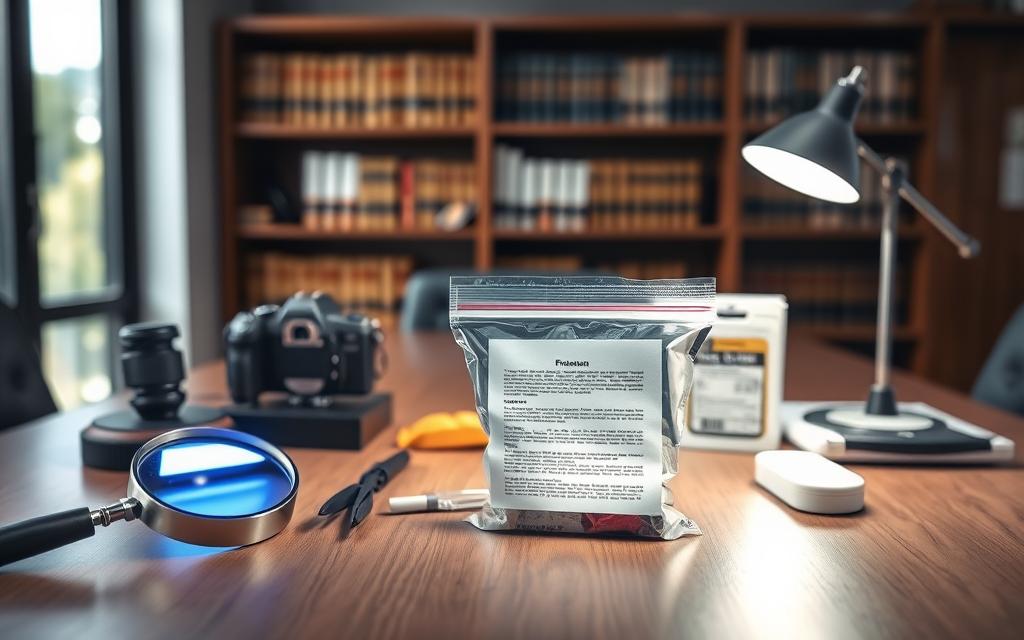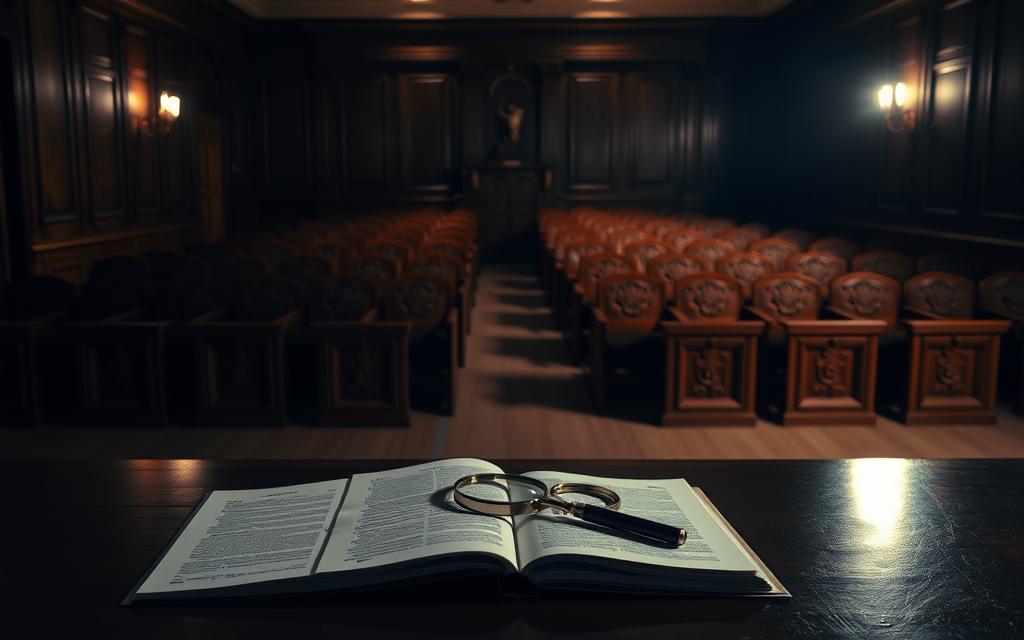Suspicions about a spouse’s unfaithfulness can leave anyone feeling overwhelmed. While emotions run high, understanding legal boundaries and evidence requirements is crucial. Courts demand credible documentation to support claims, but privacy laws limit how information is gathered.
Electronic data like texts, emails, or social media activity often serve as modern-day clues. Physical items such as receipts or photographs may also play a role. However, improperly obtained details risk being dismissed in court. For example, hacking accounts or recording conversations without consent could backfire legally.
Working with an experienced attorney ensures methods align with state laws. They’ll help identify admissible proof while avoiding missteps. A structured approach—documenting timelines and preserving records—strengthens cases during divorce negotiations.
This guide simplifies the process, offering clear steps to navigate this sensitive situation. Whether you’re gathering digital breadcrumbs or verifying financial discrepancies, knowing your rights protects both your case and peace of mind.
Understanding Infidelity and Types of Evidence
When trust fractures in a relationship, knowing how the law defines infidelity becomes critical. Legally, it often refers to a spouse engaging in intimate relationships outside marriage, though definitions vary by state. Courts typically require clear documentation to validate claims during divorce proceedings or custody disputes.

What Counts as Proof?
Digital footprints like texts, emails, or social media activity often serve as modern evidence. For instance, a deleted message thread recovered through proper methods might support a case. However, accessing accounts without permission violates privacy laws and risks evidence dismissal.
Physical Evidence Matters Too
Tangible items—such as receipts from unfamiliar places or photos taken in public spaces—can strengthen claims. These details help establish patterns of behavior when organized chronologically. Always consult an attorney to ensure collection methods align with local regulations.
To build a strong case, you’ll must prove credibility through ethical documentation. Learn more about how to catch a cheating wife without crossing legal boundaries. Properly preserved records, like screenshots or bank statements, often hold more weight than hearsay.
Here’s a quick breakdown of evidence types:
- Digital: Messages, location data, social posts
- Physical: Photos, receipts, witness statements
- Financial: Unusual spending patterns
Following these guidelines ensures you provide evidence courts will consider, protecting both your rights and the integrity of your case.
Can I get legal proof of my partner’s infidelity?
Establishing concrete facts about a spouse’s actions requires careful planning and legal awareness. Emotions can cloud judgment, leading to rushed decisions that jeopardize your position. Prioritizing court-approved strategies helps avoid pitfalls while protecting your rights.

Legal Methods to Collect Evidence
Hiring a licensed investigator is often the safest route. Professionals understand state laws regarding surveillance in public spaces or tracking financial irregularities. For example, experienced investigators can document interactions in parks or restaurants without violating privacy rights.
In one-party consent states, audio recordings made during conversations you participate in may be admissible. However, hidden cameras in private areas—like bedrooms—often breach laws. Always consult an attorney before gathering sensitive details.
Ensuring Evidence is Admissible in Court
Courts prioritize evidence obtained through ethical means. A bank statement showing unexplained expenses could support claims of financial infidelity. Text messages saved with timestamps and sender details also carry weight if collected without hacking devices.
Key factors for admissibility include:
- Clear chain of custody for physical items
- Relevance to the divorce case
- Compliance with local recording laws
Mishandled proof—like confrontational social media posts—might portray hostility rather than truth. For step-by-step guidance, explore ethical documentation methods that align with Texas family law standards. Organized records and professional support strengthen your position while maintaining integrity.
Navigating the Legal Process and Courtroom Standards
Successfully presenting evidence in family court requires understanding specific legal thresholds. Judges prioritize facts that meet strict admissibility rules, especially in divorce cases involving claims of adultery. Let’s break down how the system works.

Burden of Proof and Admissibility Rules
To prove a spouse committed adultery, you’ll need “clear and convincing” evidence. This standard means documentation must be highly reliable—like time-stamped photos of public encounters or verified financial records showing hidden expenses. Courts reject vague claims or improperly obtained details.
Key admissibility rules include:
- Evidence must be legally obtained (no hacking or trespassing)
- Documents like texts or emails require authentication
- Witness statements should directly relate to the case
Impact on Divorce Proceedings and Asset Division
Proven infidelity can influence how assets are divided, especially if marital funds financed the affair. For example, a judge might award a larger share to the wronged party if receipts show lavish gifts to a third party. However, most states no longer consider adultery automatic grounds for unequal splits.
An attorney helps navigate these nuances by:
- Linking evidence to financial losses
- Ensuring documentation aligns with state laws
- Advocating for fair division of property
Well-organized proof strengthens your position while protecting your rights during emotionally charged negotiations. Whether it’s safeguarding joint accounts or securing alimony, strategic preparation makes all the difference.
The Role of Private Investigators and Surveillance Tactics
Gathering evidence of marital dishonesty often feels like walking a tightrope. Licensed investigators specialize in balancing ethical methods with effective results, ensuring documentation holds up in court. Their expertise becomes invaluable when emotions cloud judgment or technical know-how falls short.

When Professional Help Is Necessary
Hiring a professional becomes critical when tracking a cheating spouse’s movements or online activity risks legal missteps. For instance, confirming a spouse’s secret meetings in public spaces requires discreet photography and timeline analysis—tasks best handled by experts. Investigators also navigate digital footprints, like deleted social media posts, without violating privacy laws.
Surveillance Techniques: Risks and Best Practices
Skilled investigators use techniques like photographing public interactions or recording audio in one-party consent states. These methods avoid the pitfalls of unauthorized GPS tracking or hidden cameras in private areas, which could derail a case. Partnering with an attorney ensures every detail aligns with local regulations.
Best practices for credible evidence include:
- Limiting surveillance to public settings
- Authenticating digital files with timestamps
- Maintaining a clear chain of custody for physical items
Unbiased documentation from professionals strengthens credibility during proceedings. For example, a third party’s verified report carries more weight than emotionally charged accusations. By combining legal knowledge with tactical precision, investigators help turn suspicions into actionable proof while safeguarding your rights.
Infidelity’s Effect on Divorce, Custody, and Financial Support
Marital misconduct can ripple through every aspect of divorce proceedings, reshaping outcomes for families. Judges weigh how infidelity impacts financial fairness and children’s well-being, especially when marital funds are misused. Documented patterns of behavior often become pivotal in court decisions.

How Infidelity Influences Divorce Settlements
Courts may award a larger share of assets if a spouse diverted marital funds to support an affair. For example, lavish vacations or gifts purchased with joint accounts could justify unequal property division. A 2022 case in Texas saw 60% of assets awarded to the wronged party after proof of secret credit card charges.
Financial transparency matters. Bank statements showing unexplained withdrawals or hidden accounts strengthen claims. An attorney can trace these discrepancies to argue for fair compensation.
Considerations for Child Custody and Spousal Support
Child custody decisions prioritize stability. If a parent’s infidelity exposed children to unsafe environments—like introducing new partners prematurely—courts may limit visitation. Documentation proving reckless behavior becomes critical here.
Spousal support adjustments often hinge on financial misconduct. A spouse who drained savings for an affair might face reduced alimony eligibility. However, most states avoid penalizing behavior unrelated to finances unless it directly harms the family.
Key steps to protect your interests:
- Secure financial records early
- Document interactions affecting children
- Consult experts on understanding infidelity’s legal impact
Conclusion
Navigating marital challenges requires clarity and careful action. Documenting a spouse’s behavior through ethical methods—like authenticated messages or financial records—remains central to building a credible case. Courts prioritize truth backed by legally obtained evidence, whether digital or physical.
Professional support matters. Experienced family law attorneys help ensure documentation meets strict standards while protecting your rights. They guide evidence collection, from analyzing spending patterns to validating witness statements, avoiding costly missteps.
Infidelity’s impact extends beyond emotions. It can reshape asset division, custody arrangements, and spousal support. A 2022 Texas case showed how hidden expenses led to favorable settlements for the wronged party.
Every relationship and legal situation differs. Seeking tailored advice today helps clarify options while preserving dignity. Trustworthy evidence and compassionate guidance create pathways to fair resolutions.
If facing uncertainty, take informed steps toward resolution. Partnering with professionals ensures your voice is heard—both in court and beyond.
